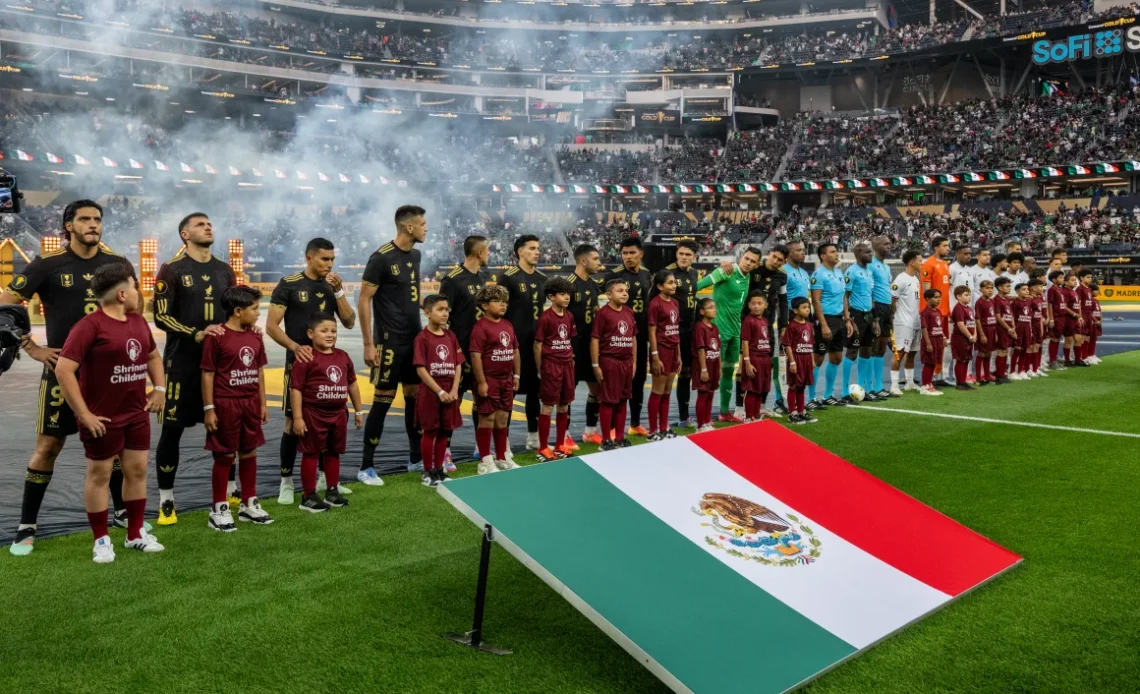Few fan bases rival the passion, volume, and sheer presence of Mexican supporters. From the rhythmic chants to the vibrant sea of green, white, and red, their energy is an integral part of every match the national team plays. But as the 2026 FIFA World Cup approaches—a tournament set to be co-hosted by the United States—an unsettling trend is emerging: Mexico supporters are staying away from stadiums.
A community once celebrated for its devotion is now caught in a climate of fear. Concerns surrounding ICE (Immigration and Customs Enforcement) presence at or near soccer venues are prompting thousands of fans to avoid matches, shifting the dynamic of Mexico’s pre-tournament momentum.
The Passion of Mexico Supporters and Their Global Influence
A Legacy of Loyalty
The loyalty of Mexico supporters runs deep. Whether the team is playing in Guadalajara, Los Angeles, or Tokyo, fans turn out in droves, creating a home-game atmosphere in nearly every venue. Their tradition is rich with symbolic chants, synchronized flag-waving, and generations of unwavering dedication. Supporting El Tri isn’t just a pastime—it’s a cultural rite.
Mexico’s Fan Base in the U.S.
The United States has long been a second home for Mexico’s national team, thanks to the massive population of Mexican-Americans and Latino communities across the country. These fans have consistently sold out stadiums, particularly during friendlies and Gold Cup matches. U.S. venues have boosted Mexico’s revenue and helped grow the team’s global visibility. Now, that crucial fan support is faltering.
Why Are Mexico Supporters Avoiding Matches?
Growing Concerns Over ICE Presence
The rising anxiety isn’t theoretical. Many undocumented fans or those with mixed-status families fear that large public gatherings—especially ones known to draw Latino crowds—might attract ICE surveillance or raids. In recent months, rumors and isolated reports of ICE agents near stadium parking lots have fueled these concerns. Even without confirmed incidents, the threat—real or perceived—is enough to instill fear.
Personal Stories of Absenteeism
For many Mexico supporters, the decision to stay home is painful but necessary. One fan in Houston, a father of two U.S.-born children, admitted, “I’ve been going to games since I was a kid, but I can’t risk it anymore. My wife isn’t a citizen. One wrong move and our whole life changes.” Stories like his are echoed throughout Latino communities across the U.S., turning once joyous family outings into calculated risks.
The Broader Impact on Team Morale and Revenue
A Noticeable Drop in Attendance
The absence of Mexico supporters is no longer anecdotal—it’s measurable. Matches that once sold out in hours are now showing empty seats. The emotional and strategic advantage that came from a roaring crowd is slipping away, impacting team morale and the overall atmosphere.
Financial Implications for Organizers
With fewer fans in the stands, revenue from ticket sales, merchandise, and concessions is taking a hit. Event organizers and sponsors count on the enthusiasm of Mexico supporters to drive profitability. As attendance declines, so does the financial viability of these high-profile matchups.
Organizers and Officials Respond
Statements from Soccer Federations and Event Organizers
Both the Mexican Football Federation (FMF) and U.S. Soccer have acknowledged the issue. In public statements, officials have emphasized that matches are meant to be safe spaces for all attendees. “We are working closely with local authorities to ensure that all fans, regardless of immigration status, feel secure and welcomed,” said one FMF representative.
Community Outreach and Reassurances
Some efforts are already underway to mend the rift. Nonprofits and immigration advocacy groups are teaming up with local organizers to distribute know-your-rights information, arrange transportation, and publicly affirm that ICE does not operate inside sporting venues. Still, rebuilding trust is a slow process.
Looking Ahead to the 2026 World Cup
Potential for a Historic Fan Turnout
The 2026 FIFA World Cup is expected to be the biggest in history, and Mexican supporters are crucial to its success. Their presence in North American stadiums has long been a powerful symbol of cross-border unity. The hope is that by then, the current fears will be a thing of the past.
Will Fears Persist or Subside?
Experts remain divided. While some believe political shifts and stronger immigrant protections may ease concerns, others worry that fear and mistrust will linger. Organizers now face a delicate challenge: balancing security with inclusion, and ensuring that the World Cup remains accessible to the very fans who help define its spirit.
Conclusion
The absence of Mexico supporters from matches isn’t just a soccer story—it’s a reflection of deeper societal tensions. In a time when fandom should be uniting people ahead of a global celebration, fear is keeping some of the sport’s most devoted followers on the sidelines. As the countdown to the 2026 World Cup continues, the world watches—not just for the play on the field, but for how the communities off it choose to show up, or not.
Never Miss a Beat! Subscribe for the Latest News & Exclusive Updates!


